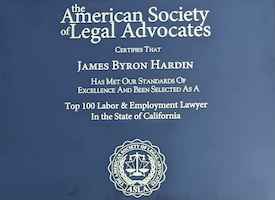A Look Into the Nuances of California’s Labor Code
Various state and federal laws govern the amount of wages to which an Orange County employee is entitled.
A recent case involving a collective bargaining agreement (Vranish v. Exxon Mobil Corp.) illustrates the fact that unionized California employees may be subject to different legal requirements than employees not represented by a union or labor group when it comes to overtime pay. In this case, the California Court of Appeal ruled on the issue of whether state overtime laws applied to employees covered by a collective bargaining agreement.
The plaintiffs in this case were employees of Exxon Mobil who were represented by a labor organization. The plaintiffs’ employment was covered by a collective bargaining agreement that required the employees to regularly work seven days in a row, with 12-hour shifts each day, and then receive seven days in a row off of work. In light of this unusual work schedule, the employment agreement set forth a definition for “overtime pay” that differed from the standard definition of overtime pay set out in California Labor Code, section 510. The plaintiffs sued, claiming that Exxon Mobil owed them overtime compensation at the rate required by the labor code. California Labor Code section 510, which applies to employee overtime pay in California, typically requires that an employee be paid overtime, or one and one-half times their usual pay rate, for time worked over eight hours and less than twelve hours in a single work day.
In this case, the courts effectively denied the plaintiffs’ claim of unpaid overtime due to the definition of the word “overtime” as used in the employees’ collective bargaining agreement. Finding that California Labor Code section 514 allows for a different definition of “overtime pay” when employees are covered by a collective bargaining agreement, the Court concluded that when there is a valid collective bargaining agreement in place, employers and employees may bargain over both the rate of overtime pay, and when overtime payment will begin. Accordingly, section 510’s definition of “overtime” did not apply, and the employees were not entitled to the overtime pay that they had demanded in their lawsuit.
Cases like Vranish illustrate the nuances in California’s labor laws as applied to businesses.
In light of these nuances, it is important for employees who believe they may have been subject to a violation of wage and hour laws of California to contact an experienced Orange County employment attorney at Hardin & Associates to discuss such employment-related issues.





















